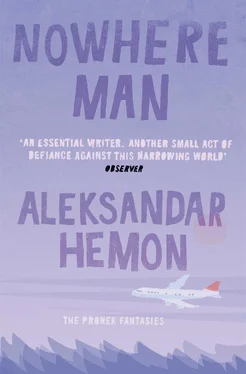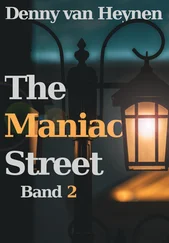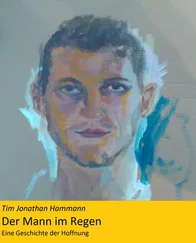I woke up in front of a morose building, with my cheek pressed against the promontory bone of Jozef’s shoulder. Will informed us — he always seemed to know where we were and why — that was the student dorm that would provide lodging while we were in Lvov. The students coming in and out retracted their heads between their shoulders, their chins poking their chests, their mood clearly surly. I could tell that the showers in the dorm did not work.
Jozef and I shared a room, which was, to put it mildly, ascetic: bare walls (although my memory keeps stretching on its toes to hang up a Lenin picture); steel-frame beds with thin, sunken mattresses; a wobbly chair and a wobblier desk, which sported two symmetrical nails on the insides of its rear legs, a student-torture contraption.
Will burst into our room, asked us — me, in fact, for Jozef ignored him — if everything was all right. It was, I said. Will announced that he was trying to find out if we could have better accommodations, and stormed away.
“Who is this?” Jozef said. “I don’t like him.”
“He’s okay,” I said. “He just wants to help.”
“Maybe,” Jozef said, and then just as abruptly walked out. I did not want to be abandoned in this dreadful place, but I could not just follow him. So I was alone, sitting on a bed that reacted with a screech to the minutest muscle contraction, staring at an empty wall that called for a Lenin. I pressed my hands with my knees, until they were numb, distilled almost to jelly with the act of fear.
I thought of the day when my father took me to a baseball game, after years of my pleading and weeks of my mother’s lobbying. He loathed baseball — hitting a ball with a stick for no discernible reason, producing mind-numbing, indulgent boredom, that was how he saw it. He had informed me that there would be no hot dogs or soda for me, but I was still giddy with excitement. We sat in the Wrigley Field bleachers, and I had my baseball mitt (a present from my mom), which had spent long months closeted. I was convinced that I would catch a ball, that it was my day, when everything would come perfectly together. My father refused to stand up for the national anthem, because he was still Ukrainian, as if “The Star-Spangled Banner” wounded his Ukrainianness. He made me stand up, he wanted me to appreciate America, for I was born here. During the game, he was bored out of his mind, and he kept looking anxiously at his watch. It did not happen, I caught nothing. We left in the sixth inning, and I hated my father for being a fucking foreigner: displaced, cheap, and always angry.
Whereupon Jozef walked in with a handsome bottle of vodka, unscrewed the cap, and said: “You want drink?”
“Hell, yeah,” I said, and took a throat-parching gulp.
“Do you like baseball, Jozef?” I asked him.
“It’s stupid,” he said. “You kick ball with stick, it is nothing.”
“Yeah, I know.” I told him the sad story of the eternal misunderstanding between my father and baseball. Jozef listened to me not with the mandatory we-have-all-been-there interest, but with a detached, patient involvement, leaning slightly, and kindly, toward me. Now I realize that it could have been because he was trying to decode my English words, which still does not diminish my belief that he understood me better than anybody, precisely because he could go beyond my vapid words. He told me how his dad used to punish him: he would sentence him to twenty-five belt lashes for a transgression (going through the pockets of his father’s suits, or stealing) and determine the time of the execution — normally, Jozef said, after the evening cartoons. He spoke in his broken English, with articles missing, with subject, verb, and object hopelessly scrambled — yet I understood him perfectly, clearly visualizing the sequence of punishment. There was no screaming or yelling, no random disorderly violence — so much unlike my father, who would rip off kitchen cabinet doors and slam them against the walls. After the cartoons, they would go into the bedroom, and the lashing would take place, red butt cheeks and all — I am loath to confess that I envied him for having had those moments.
“Fathers,” Jozef said. “They are strange.”
Then we talked about our mothers, and their domestic sufferings. Jozef remembered how he had always hoped that his mother would come into the bedroom and stop the lashing, but she never did. I told him how my mother would throw things out of the kitchen cabinets onto the floor, smash the plates, fling pot lids at my father like Frisbees, and they would bounce off him. We talked about women, our first loves — a topic that required some embellishing and enlarging on my part. We talked about our childhoods, the friends that we had had and were now gone — except Jozef’s were not gone, they were all in Sarajevo. The silly adventures in school: snorting Kool-Aid in order to sneeze in the biology class (Jozef), smoking pot in the tenth grade, and then being high and afraid to climb down the rope in the PE class (me). The trite acts of rebellion which seemed revolutionary in our adolescence: saying “Fuck you, bitch!” to a nun (me); throwing a wet sponge at a Tito picture (Jozef). We compared Chicago and Sarajevo, how lovingly ugly they were, and how unlovingly parochial. Our mouths went dry, vodka diluted our blood and rushed to our heads. I was so drunk and excited at dawn that I wanted to hug him, but did not want him to think that I was strange. When we finally went to bed at dawn, I lay with my eyes open, watching the sunlight crawl across the wall above Jozef’s bed, discovering stains shaped like Pacific islands, my heart throttling in my chest. I could still hear Jozef whispering, telling me the funny story about the loss of his virginity. His breath kept tickling my earlobes, even as he was tossing in bed, and the soft nurse would not come and stroke my curls.
Oh, Lvov, with your old downtrodden monuments of comfortably bourgeois times; your Mittel-European ornaments on the facades, barely visible through the thick filth of progress; your squares with nameless statues of obscure poets and heroes! Did I fail to mention I had never been in Ukraine before? All I knew I heard from my father, who had left a long time ago. Jozef and I wandered the streets of the old town and were sickened by the geometrical landscapes of the new town — to him all of it had familiar Eastern European shapes; to me it all seemed like a dream dreamt by another dream. Somewhere there — but where I knew not — was the Lvov my father had grown up in and had since left, and, bad son that I was, I had little interest in seeking it out.
Jozef needed to have coffee in the morning, so he was on a quest: we found an Armenian coffee shop, where we drank the muddy liquid, not unlike Jozef’s Bosnian coffee. I am an herbal-tea man, so having had coffee that you could spread on a slice of bread, I was jittery and warbly, could not stop talking. Everything had to be told, and fast. I talked about my father, about his being born in Lvov. I talked about all the things he had never told me, things I found out eavesdropping on my mother’s furious rants when they fought. I told him that my father had been a member of a secret Ukrainian organization — very secret indeed. They prepared for a war of liberation, and hated Russians, Poles, and Jews. And then in World War II, he was an eighteen-year-old fighter with Bandera partisans, fighting Bolsheviks and avoiding fighting Germans. Bandera himself was imprisoned by the Germans and then was shot by the KGB after the war and. . “I know,” Jozef said. Anyway, my father and his fellow fighters hid in the woods around Lvov, here and there robbing a truck of supplies, paying a high price in lives. They drank water from poisoned wells, ate cattle corpses found in villages burnt by the Germans or the Bolsheviks, then died of animal diseases, boils exploding all over their faces. Man’s life was as cheap as beast’s. The few surviving fighters slipped into the disorder and carnage of the German defeat, and ended up happily imprisoned in the Allies’ POW camps. My father had been a student of music — he was a baritone — so he sang in those camps: old Ukrainian ballads, Italian arias, and prewar Paris chansons that had somehow reached Lvov. He went to England, lived in Liverpool, worked on the docks, then he was off to Canada, where he ran the memberless Ukrainian-Canadian Opera Society and sang at weddings and funerals — mainly funerals. Then he went to Chicago, where he conceived my miserable self.
Читать дальше












